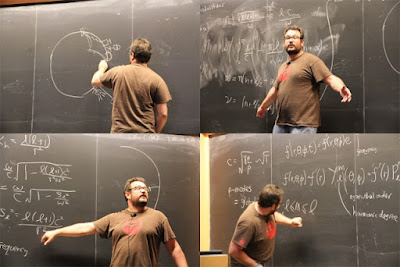Peace Out
A Day in the Life: October 21st
(Aged 14)
Wea. WED. OCT. 21, 1896 Ther.
I went to school. Geo came down finished cutting corn. Charley picked apples.
(Aged 16)
Wea. FRI. OCT. 21, 1898 Ther.
Went to school. Rode down with Mearle Cowan + back as far as Thornton’s with Mrs. Thornton + walked the rest of the way. Part of the scholars spoke peaces today.
(Aged 17)
Wea. SAT. OCT. 21, 1899 Ther.
Drove team in P.M. In A.M. worked in packing house.
(Aged 18)
Wea. SUN. OCT. 21, 1900 Ther.
Stayed at home all day. Mrs. Mason came up to stay this week. In eve Alice + I went out for a ride. (no X)
(Aged 19)
Wea. MON. OCT. 21, 1901 Ther.
Got out stringers. Chas husked.
(Aged 20)
Wea. TUE. OCT. 21, 1902 Ther.
Drew up wood. Gail worked in ditch.
(Aged 21)
Wea. WED. OCT. 21, 1903 Ther.
Stayed at home all day. Clint brought down a load of wood.
Editor's Note: The trouble with English is all the dam(n) homophones one must wade through to get to the real meaning of an idea. On more than a few occasions, Allen has mentioned scholars "speaking peaces". The term scholars has always been taken to mean students when read in context. What else could it be but an archaic usage? But "peaces" I took to mean something biblical for some reason. Go in peace, peace be with you, etc. But there would not have been any bible reading in school. I looked up the phrasing and hit upon a lot of sites devoted to the debate of this very idiom. One comment sums it up quite tidily. "After speaking your piece, you should hold your peace." So it would appear that Allen's spelling is throwing off the meaning he intends. Rather than preaching, the students were most likely simply reading their homework essays aloud. God, I hated doing that. It makes me nervous even now thinking about delivering my report on Sweden* to my 6th grade class.
*This memory reminds me of a post I've been meaning to put up. Watch this space.
(Aged 14)
Wea. WED. OCT. 21, 1896 Ther.
I went to school. Geo came down finished cutting corn. Charley picked apples.
(Aged 16)
Wea. FRI. OCT. 21, 1898 Ther.
Went to school. Rode down with Mearle Cowan + back as far as Thornton’s with Mrs. Thornton + walked the rest of the way. Part of the scholars spoke peaces today.
(Aged 17)
Wea. SAT. OCT. 21, 1899 Ther.
Drove team in P.M. In A.M. worked in packing house.
(Aged 18)
Wea. SUN. OCT. 21, 1900 Ther.
Stayed at home all day. Mrs. Mason came up to stay this week. In eve Alice + I went out for a ride. (no X)
(Aged 19)
Wea. MON. OCT. 21, 1901 Ther.
Got out stringers. Chas husked.
(Aged 20)
Wea. TUE. OCT. 21, 1902 Ther.
Drew up wood. Gail worked in ditch.
(Aged 21)
Wea. WED. OCT. 21, 1903 Ther.
Stayed at home all day. Clint brought down a load of wood.
***********
Editor's Note: The trouble with English is all the dam(n) homophones one must wade through to get to the real meaning of an idea. On more than a few occasions, Allen has mentioned scholars "speaking peaces". The term scholars has always been taken to mean students when read in context. What else could it be but an archaic usage? But "peaces" I took to mean something biblical for some reason. Go in peace, peace be with you, etc. But there would not have been any bible reading in school. I looked up the phrasing and hit upon a lot of sites devoted to the debate of this very idiom. One comment sums it up quite tidily. "After speaking your piece, you should hold your peace." So it would appear that Allen's spelling is throwing off the meaning he intends. Rather than preaching, the students were most likely simply reading their homework essays aloud. God, I hated doing that. It makes me nervous even now thinking about delivering my report on Sweden* to my 6th grade class.
*This memory reminds me of a post I've been meaning to put up. Watch this space.
 |
| Unlike me, Richard has no problem speaking his piece. |
***********


Comments
Post a Comment